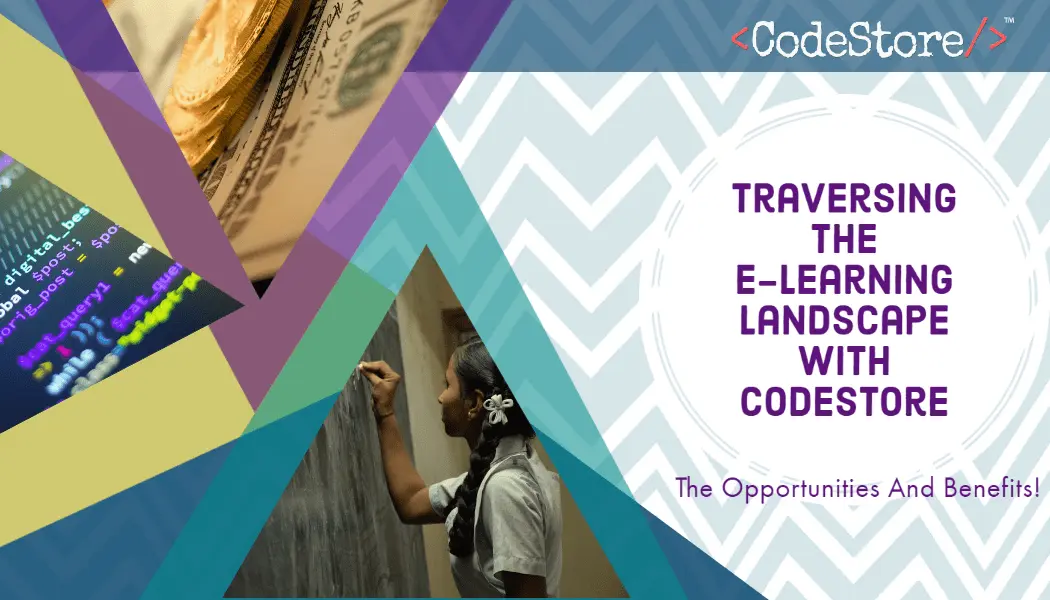The 21st century is known for its technological advancement, which has brought about a profound turnaround in nearly almost all industries. The core of this transformation has been the evolution of Smartphones and their applications.
Education or e-learning is one of the rapidly emerging sectors worldwide. Today, learning is not just limited to schools or colleges. There is a beeline for educational app development companies to craft the best digital learning solutions. The wings of knowledge have broken the traditional shackles to embrace modern technology. Now, one can learn anything, anywhere, and at any time. Classroom teaching will soon become a thing of the past as e-learning becomes more advanced and improved with interactive e-learning apps.
With the inclusion of mobile apps, technology has altered the basic landscape of the educational segment. Every organization has seen profits by indulging itself in the development of educational apps. Today, major players that have come up to revolutionize education technology include BYJUs, Udemy, Amazon Kindle, Coursera, E-Gurukul, etc.

As compared to face-to-face learning, e-learning apps bring forth considerable challenges. The online mode of education lacks human connect, not-so-efficient teacher supervision, deficiency of opportunities in hands-on learning in complex subjects like maths and science. As more and more educational institutions are going the online route and adopting e-learning apps, the challenges to provide quality learning with a holistic and immersive learning experience have popped up. However, with the effective utilization of technology stacks, remote learning has become a rising trend!
Quality Learning
How we define Quality Education has undergone substantial changes in the online mode. The introduction of modern ICT(Information and Communication Technology) components has helped to overcome challenges caused by the physical distance between the learner and the teacher. They have also contributed to great value additions to virtual classes which have resulted in an enhanced learning experience. Here are a few ICT integrated learning strategies that have revolutionized the e-learning apps!
Immersive Digital Tools
There are four elementary learning needs that form the base of educational theories ranging from constructivism to behaviorism to social cognitivism. They are Arousal, Self-determination, Competence, and Relatedness.
By incorporating the much-needed “entertainment angle” by gamification of education through technology, an e-learning app can successfully hit the bull’s eye! By meticulously designing customized learning elements that suit the learner’s interest and understanding, the app can boost engagement significantly.
Rich texts, graphics, audios, videos, and games introduce fun, collaboration, and exciting challenges to learning. The learners of today are digital natives and to cater to their needs, the e-learning apps must pack themselves as edutainment(education packed with entertainment). It will allow the users to remain engaged for a longer time while setting new learning goals for themselves. The app should also facilitate the learners to learn at their own pace, revisiting a specific lesson numerous times as per their wish before they move on to the next stage.
Freestyle Learning
The traditional classes have always been teacher-driven and the narrative of the learning process is dictated by the teachers and not the learners. However, it is not effective every time as a learner might prefer to focus on particular areas of learning. An e-learning app adopts the strategy of freestyle learning. Depending on the skills and subskills that a learner wants to learn, he/she can choose and customize their learning from the app.

Feedback Vs Feed-forward Technique
Feedback provides suggestions to boost the learning processes. It can help the learners to enhance their learning by advising them where they are going wrong and how to improve on their learning curve. Meaningful feedback offers a wide array of benefits. Not only does it allow the learners to get the best out of the e-learning modules and courses but also it ensures that the e-learning professionals are a part of constructive criticism which essentially helps them to improve on their deliverables. An effective e-learning feedback process can transform an e-learning app into a resounding success for all the stakeholders.
Feed-forward on the other hand is a model that is future-oriented and incorporates ideas about what a teacher and learner can do differently with a learning course. The feed-forward technique allows the learners to constantly reflect on their productivity from the e-learning sessions and make self-assessment. This ensures better learning outcomes in online mode.
Perks of E-learning Apps:
- Not only these apps are convenient to use but also they are more affordable than the courses offered by the standard educational institutions.
- These apps are easily accessible as one can gain access to the learning materials and much more from any place, any time.
- Students are increasingly preferring e-learning apps as they offer ready-made solutions to problems such as solving a math problem, or simplifying the hard concepts, etc.
- It offers limitless learning opportunities as one can learn as much as he/she wants. The knowledge isn’t confined to books anymore!
- These apps also facilitate interactions with friends/teachers etc at the user’s ease.
- These apps witness more student engagement as students can concentrate on the audio-visual media and envision the entire idea.
The Basic Features of E-learning Apps Include:
- Login/Signup: This is the elementary step to get into an e-learning app to start the e-learning journey. Users can log in with valid credentials such as email & password or phone number & password.
- User Profile: In this section, users can view their dashboard and the courses they have enrolled in. They can edit their account details and make changes to their timetables.
- Search: This feature enables users to get direct results of what they are looking for. They can search for their relative subjects/courses and to create such a type of search system, developers generally implement ElasticSearch.
- Content Material: Contents are created from reliable sources and include all the relevant data that the students can easily search and opt for. Content materials include lessons, theories, text exercises, video & audio lectures, live video lecture streaming, model papers, etc.
- Push Notifications: This is a feature that lets the users stay updated on the course content, new courses that are introduced, remarks by teachers, etc. It increases user engagement considerably.
- Payment Gateway: The feature which makes the payment activity smooth and reliable is embedded in those e-learning apps to make the user experience seamless.
- Student Management: Teachers need to manage students efficiently. For this, they need a list of learners and the related details about them. Also, the tutor needs to check the student’s tests and put marks on their respective dashboard. For that, a robust student management tool is required for the e-learning app on the teacher’s end.
- Document sharing: Teachers and tutors can upload their documents in pdf form which can be easily accessed by the students at any time and anywhere. They can be downloaded in device memory of the respective users which can then be accessed offline.
- Leaderboard: To motivate the students, integration of a competitive leaderboard can be another feature of the e-learning apps. It encourages students to study hard to be on top of the leaderboard.
- Multilingual: Any e-learning app should be supported by various languages to enable users from every corner of the world to utilize it.
- Quizzes and Tests: Another feature that an e-learning app should consider incorporating is providing daily/weekly/monthly quizzes and tests for its users to regularly make them stick with their courses and to revise them properly.
Costing of an E-learning App:
With the development of an e-learning app, various factors are considered and analyzed while assessing its development cost. The cost of the app depends on its complexity, design, framework, tech used, intended regional outreach, etc. The cost varies based on features (basic or advanced) and the platforms (android or iOS). The approx costing of an e-learning app development with CodeStore Technologies is around $20000-$30000.
Conclusion:
There is no doubt that education is getting more modernized and has come a long way to become digitized. There is a lot more that needs to be done and improved in the education sector and we want to play a big role in the transformation with our deep expertise. As educational businesses are investing more in the e-learning app for a better future, we will strive to be at the forefront of such efforts!

